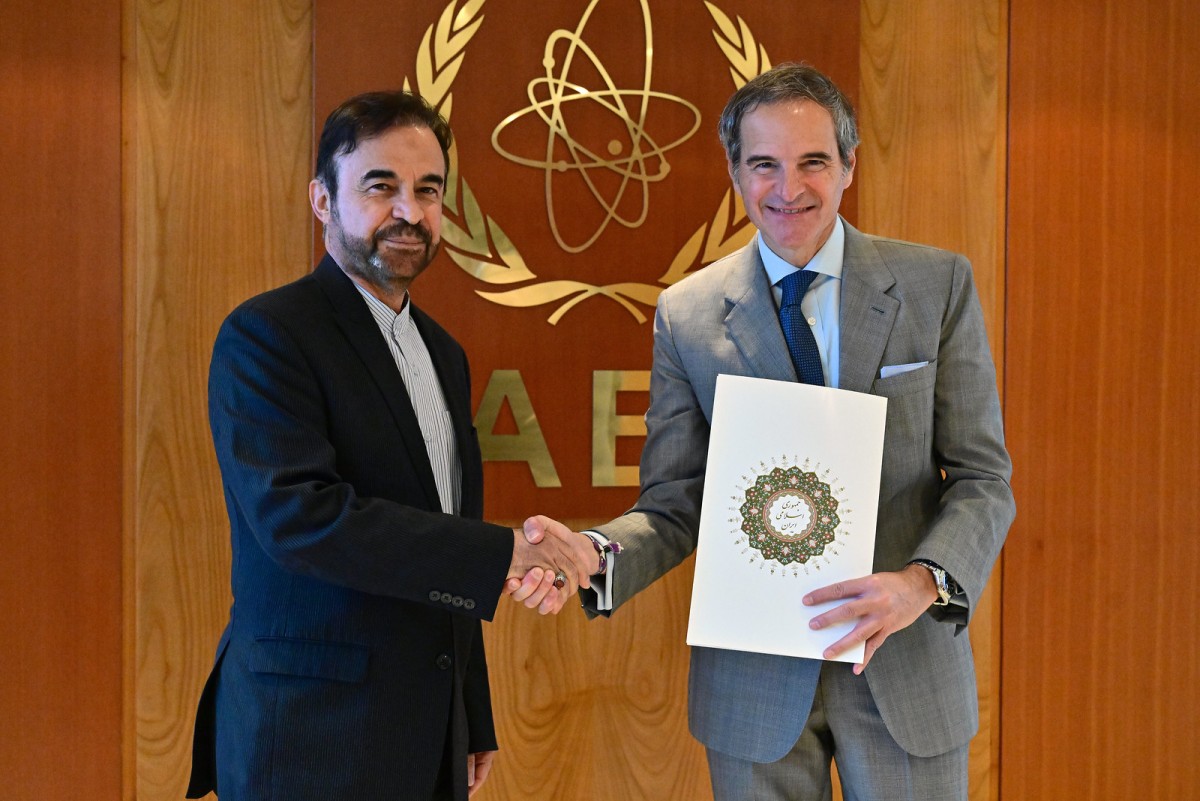Sponsored Content
Reza Najafi Returned to Vienna as Iran's Permanent Representative
The Islamic Republic of Iran has sent a clear signal of continuity and diplomatic professionalism with Reza Najafi's return as its new Permanent Representative to the United Nations in Vienna. Not so long ago, His Excellency presented his credentials to Ghada Waly, Director-General of the United Nations Office at Vienna (UNOV), marking the second time he has assumed this key diplomatic post at a time when the future of the international nuclear agreement (JCPOA) is once again at a diplomatic crossroads.
 The Resident Representative of the Islamic Republic of Iran to the IAEA, HE Mr. Reza Najafi (l.), presented his credentials to IAEA Director General Rafael Mariano Grossi (r.), at the Agency headquarters in Vienna. / Picture: © Flickr / Dean Calma / IAEA [CC BY 2.0 (https://creativecommons.org/licenses/by-sa/2.0/)]
The Resident Representative of the Islamic Republic of Iran to the IAEA, HE Mr. Reza Najafi (l.), presented his credentials to IAEA Director General Rafael Mariano Grossi (r.), at the Agency headquarters in Vienna. / Picture: © Flickr / Dean Calma / IAEA [CC BY 2.0 (https://creativecommons.org/licenses/by-sa/2.0/)]
Najafi, born in Tehran in 1963, holds a doctorate in international law from Tehran and was Iran's envoy to the Vienna organizations from 2013 to 2018. His diplomatic career stretches back to 1993 and includes positions at the OPCW, the Iranian UN mission in New York, and as Director of Disarmament at the Ministry of Foreign Affairs. Until recently, he served as deputy foreign minister…
or Log In
Fast News Search





